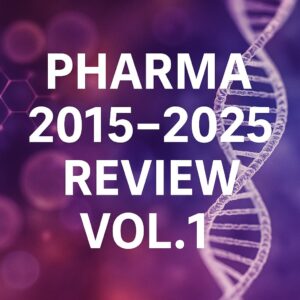Strategic Review: Shifting from Antivirals to Oncology and Cell Therapy
Gilead Sciences, once dominant in the antiviral space—particularly in HIV and hepatitis C—has been facing declining revenue due to patent cliffs. Since 2015, the company has aggressively pivoted to oncology, cell therapy, and gene therapy through a series of acquisitions and strategic partnerships.
Key Deals and Acquisitions (2015–2025)
- 2017: Acquired Kite Pharma (CAR-T therapy “Yescarta” for hematologic cancers) for approx. $11.9B
- 2020: Acquired Immunomedics (Trop-2 targeting ADC “Trodelvy” for breast cancer) for approx. $21B
- 2020: Acquired and partnered with Pionyr Immunotherapeutics (MDSC-targeting cancer immunotherapy), up to $1.7B
- 2021: Option to acquire Tizona Therapeutics (checkpoint inhibition antibodies for solid tumors), $300M + milestone options
- 2022: Acquired MiroBio (antibodies targeting T cell inhibitory receptors for autoimmune diseases) for $405M
- 2024: Partnered with Tango Therapeutics (synthetic lethality tumor targets, small molecules), up to $6B
Strategic Significance
Gilead has leveraged its antiviral success and cash reserves to build a diversified oncology pipeline, focusing on ADCs, CAR-T, and T-cell modulation. With multiple products like Trodelvy and Yescarta achieving commercial success, its acquisitions are bearing fruit. The inclusion of synthetic lethality and autoimmune programs reflects a broader horizon.
My Insight
Gilead has taken bold steps in investing in innovative technologies. Not all deals are guaranteed to succeed, but several have already led to viable products, and the company has demonstrated sound risk-taking in response to environmental and market changes.





Comments